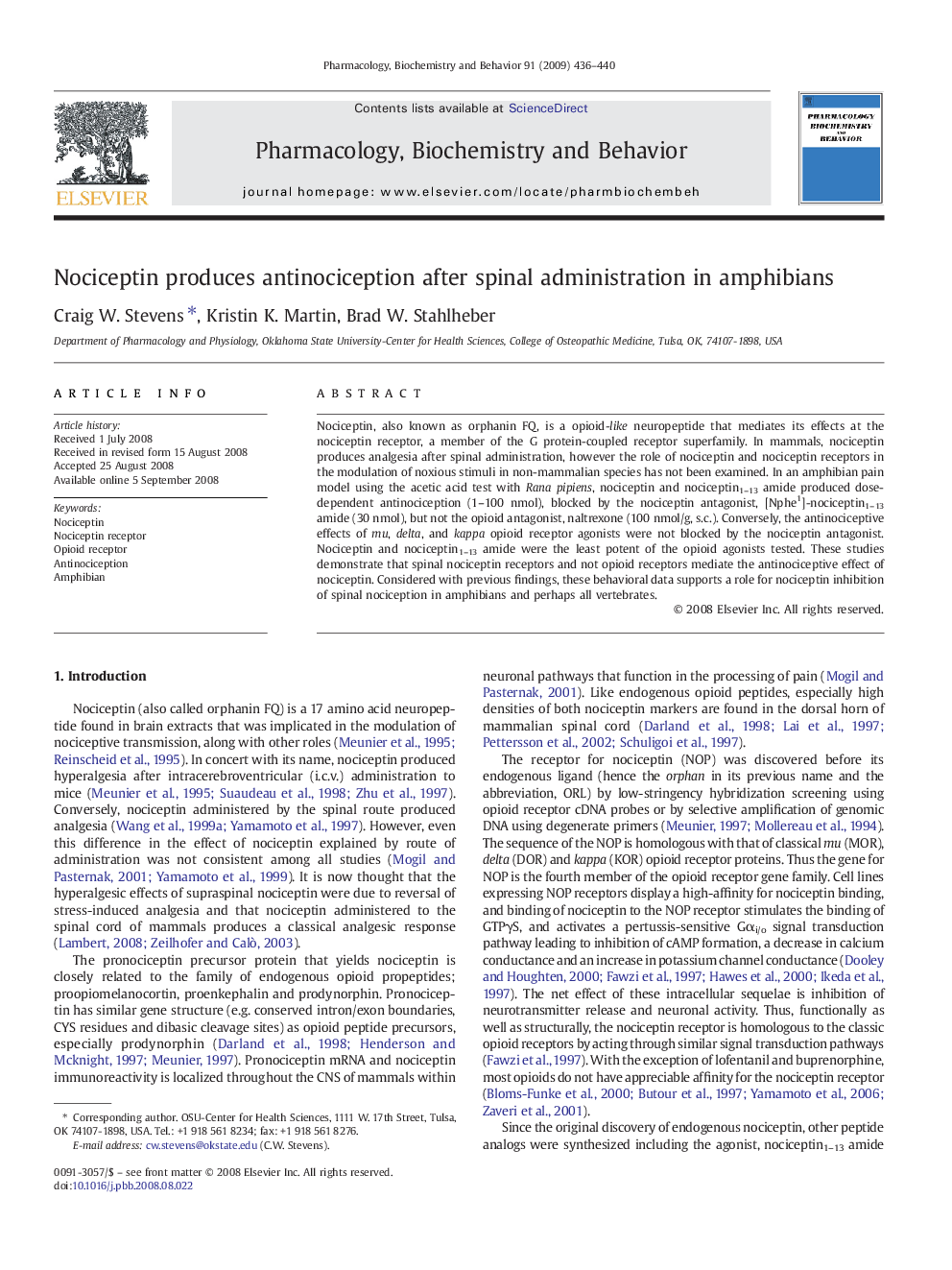| Article ID | Journal | Published Year | Pages | File Type |
|---|---|---|---|---|
| 2014146 | Pharmacology Biochemistry and Behavior | 2009 | 5 Pages |
Nociceptin, also known as orphanin FQ, is a opioid-like neuropeptide that mediates its effects at the nociceptin receptor, a member of the G protein-coupled receptor superfamily. In mammals, nociceptin produces analgesia after spinal administration, however the role of nociceptin and nociceptin receptors in the modulation of noxious stimuli in non-mammalian species has not been examined. In an amphibian pain model using the acetic acid test with Rana pipiens, nociceptin and nociceptin1–13 amide produced dose-dependent antinociception (1–100 nmol), blocked by the nociceptin antagonist, [Nphe1]-nociceptin1–13 amide (30 nmol), but not the opioid antagonist, naltrexone (100 nmol/g, s.c.). Conversely, the antinociceptive effects of mu, delta, and kappa opioid receptor agonists were not blocked by the nociceptin antagonist. Nociceptin and nociceptin1–13 amide were the least potent of the opioid agonists tested. These studies demonstrate that spinal nociceptin receptors and not opioid receptors mediate the antinociceptive effect of nociceptin. Considered with previous findings, these behavioral data supports a role for nociceptin inhibition of spinal nociception in amphibians and perhaps all vertebrates.
